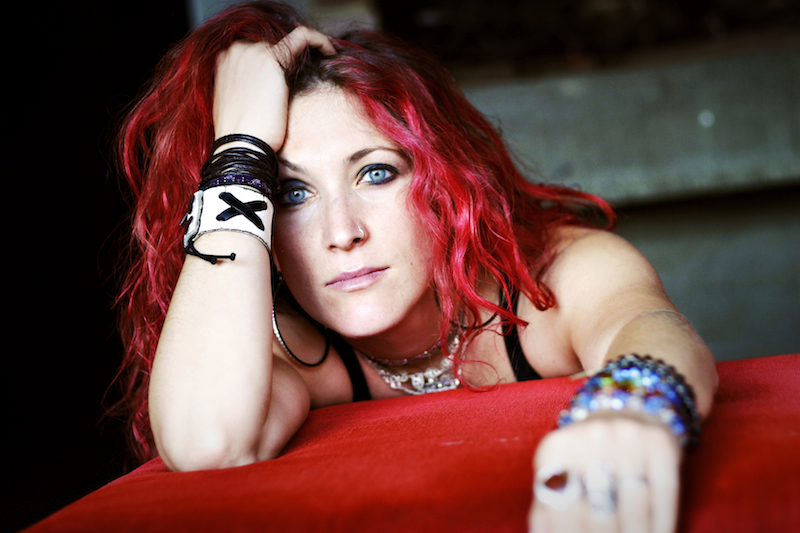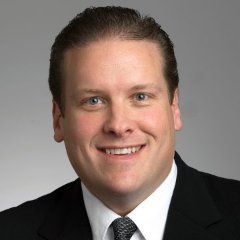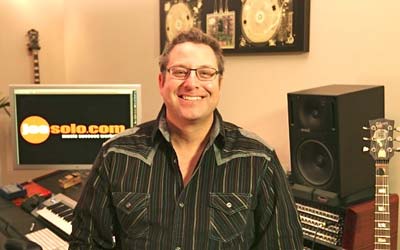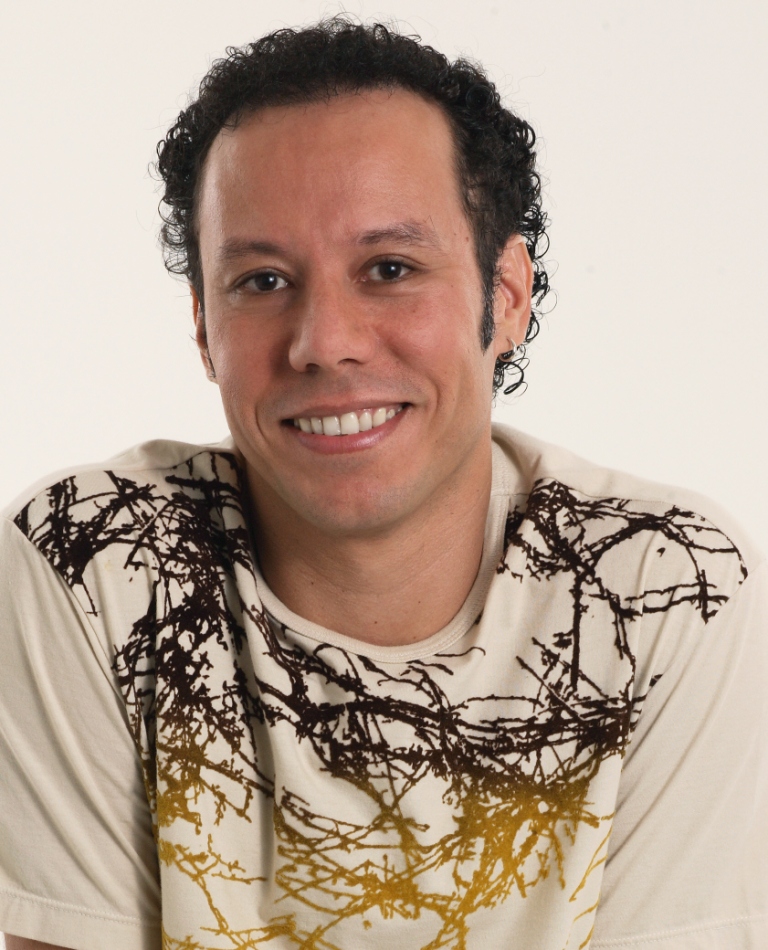Being an independent artist today, certainly is no easy feat. Yet over the years Sam Shaber and her band, The Happy Problem, have consistently carved out a niche for themselves. From juggling recording and touring, to handling the music administration aspects of running her very own indie label, to dedicating the time to find music sync opportunities; Sam does it all!
After successfully having their music featured in series like CW’s “Privileged” and ABC Family’s “Switched at Birth,” “Greek” and “Wildfire,” Sam and The Happy Problem have recently done it again. This time with a sync placement in FOX’s riveting series, “Sleepy Hollow.”
We recently caught up with Sam, hoping to glimpse insight into the latest music happenings with this wonder woman!
Mark: Tell us what’s new
SAM: What’s new is that we have a new album coming out February 2nd, 2016. It’s called “Birth.” It is our third release but it is called Birth! It used to be called “Birth and Death and All the Crap In Between.” That was a little bit long. Then it was shortened to “Birth and Death” and now it is just “Birth.” So we are going with the positive on that one.
So because of that we have geared up in many ways. We are shooting three videos in December. And we are gathering our whole crew together for that, so that’s very busy. We are also updating all of our social media. And we just had a sync on “Sleepy Hollow” and we have some other stuff that has been sent out, and you know we will see what happens with all of that. And we are also booking a bunch of shows coming up. So a lot going on.
Mark: That sounds like a good concerted push of the band around this release, which is great. And the sync of course, is really good timing in the midst of all of that. So that it wonderful.
So let’s talk about Sync for a second. How important is sync to you and have you actually seen a bump in any kind of measurement that you can tell on your social media or people streaming etc, when you have a sync.
Sam: Sync is hugely important. To me it is almost the most important thing. And part of that comes from the structure of my band, which is me as the boss and a revolving door of players at times. I think when you’re a band that grew up together, you are all buds and hop into the van and you eat peanut butter and jelly, etc. It can be a different system of priorities, in terms of the way you are getting your music out there, because you can reach an audience through the clubs, you can reach an audience through a social scene, you can reach an audience in a lot of different ways. But for me, I have always found that sync is my strongest way of reaching an audience. You reach more people at once, you benefit from having your music married to picture which instantly gives it context, which is very, very cool because music is very heavily influenced by context.
And yeah, especially in this day and age of social media, the great thing about having the song on “Sleepy Hollow” is that it’s a show with a rabid fan-base and also a very attentive social media team. The writers tweet, the fans tweet, the show, the network. There are a bunch of different accounts, a bunch of different places it comes from. The night the show aired—and I’m sure when it re-airs and re-runs on VOD and so on—we definitely got a bump. We got a great reaction.
There is actually a woman on Twitter who connects music from tv shows to… basically she tagged us on a site that lists all the music and all the bands that were on the “Sleepy Hollow” episodes. So it was really awesome, because our song came in a scene literally right up against a song by the band Jet, and we were both tagged. We were both in this listing and of course Jet is a very well-known band, so we picked up people from them and also the fans… they call themselves “Sleepy Heads;” we got the fan bump.
The nice thing about sync as well is the place in which you are synced is basically vetting you to their fans. So a show like “Sleepy Hollow” which has a very big fan-base, a very rabid, very particular… if your song is on that show you are being vetted by that show, and you are being exposed to all those fans in a way that you wouldn’t if you were playing in a club somewhere and they sort of stumbled upon you. So I think that is one of the really powerful things about sync.
It’s not always that great, sometimes it is an instrumental in the back of an MTV reality show, but even that could be really good for context, it could help on the other side of the table, just letting people know that you are an active band, and people are investing in you and that your stuff is being placed and showing up on royalty statements. I think that has a value as well.
Mark: Well of course. I mean, you look at every single sync; all syncs have some value, but some syncs have more value. And I think there is a difference here, when you are talking about an instrumental that is in an MTV show; look it’s possibly some relevance in terms of people discovering you. Certainly there will be the possibility of somebody doing that from an MTV show and there is the possibility that you are going to get some decent money on the back end. .
However in comparison to something like you talked about with Sleepy Hollow; that really has the power to do something to reach out to the fan-base of Sleepy Hollow, in a way that is impossible on a local level. It really is an international sort of awareness that is created by a good sync. And in addition to that, it is not just the people who are in the fan-base but it is all the people who watch the show. Because you can think—this is the way I look at it—if somebody is watching a show, or a TV ad, whatever it is, they’re not only going to be the people who are really going to go and research it, there are also the people who are gonna sit there and they are just gonna Shazam it. Then they are going to find out about you in a way that would never be possible, otherwise.
So there is combination of creating awareness, social media, being able to discover it through software. Is something that only sync could do. What is also great about it, I think, is that it doesn’t just drive awareness, but it drives people to do other things. It drives them to share your music. It dreams them to stream it, make it, even buy it, certainly go to a show.
SAM: Exactly. For many years I was a touring singer-songwriter, and I did it solo, with my guitar. I toured all over the country, 50,000 miles a year, and played an average of 4 gigs a week; 176 gigs a year; and it was fantastic, kind of like a hand-to-hand combat situation. You meet everybody face-to-face, you build your mailing list.; five people; ten people; twenty people at a time. You are selling CDs out of your car, it is the classic story.
But if you think about it, how long is it going to take, building 5, 10, 15 people at a time; versus being seen by, what, a million people at once, on “Sleepy Hollow?”
So the difference is vast, and part of what changed my gears from the folk troubadour world was that knowledge. But the flip side of that to me is, nothing can beat the live experience. So you can’t just sit in your living room—you can—but I don’t just want to sit in my living room and call music supervisors all day, or have my rep do it, and just wait.
I like to be out on the road, I like to perform. I think that helps your sync success and the sync helps your live success. It is all part of this big, multi-armed approach for moving forward with your music. If you only do one, the other one suffers and the one you are doing suffers. So it is really a vital part of the whole piece of it.
Mark: I agree. So in terms of your approach to sync, I know you work with Michelle Bayer on sync. When you confer with her, do your guys work closely together on that; do you give her the catalogue; do you discuss each opportunity, what is the process?
SAM: We do.
Well, I did it myself for about six or more years, before I connected with Michelle. And because of that, and going to conferences like Sync Summit and Billboard’s Film and TV conference, that kind of stuff, and living in LA for a while, I really got to know the supervisors, some of the editors, some of the licensing people, the people at the networks, the people at the shows, before I met Michelle. In fact I was connected to Michelle by Alicen Schneider, VP of music at NBC whom I’d gotten to know over the years.
So it was interesting, because I was very used to doing it myself, I had all of my own spreadsheets, I knew a lot of these people personally, and suddenly there was a person there in between me and them. So we had some growing pains, because I was sort of stepping on toes for a while. Sometimes I would contact people Michelle had already contacted. I wasn’t trying to get around her. I was always gonna keep her in the loop, but I just felt like “Oh no. I need to contact them, because I know them. I have to…!” And it was getting a little awkward for a while. Then we sat back and we talked about it and we worked it out.
So now we are very collaborative. We just have a little system, where every time I am about to do something and reach out to somebody, I run it by Michelle first because it is just going to look weird if she has already reached out and I also reach out. And you don’t want to present a disjointed front to anybody.
MARK: Well that is very important.
SAM: One thing that I think is a really important thing to say, with all the talk that I just gave about Alison Schneider and the music team at NBC, I’ve know them for 7 years, we go for coffee, we buy shoes together, we hug, they set me up with Michelle. But they’ve never actually placed a song of mine. And it is totally fine. Do you know what I mean? Like, I mean yes it would be lovely if someday they do, but the reality is, and this is the very unique thing about sync, versus like radio promotion or even booking: the music has to fit the picture. And it doesn’t matter how much they love you, how many times you have coffee, how amazing your music is, if your song does not fit the cue, it can’t be used. And that is the end of the story. It is not a personal rejection. It is not somebody ignoring you or being a jerk. That is just reality. And so they have not found a place for me yet on an NBC show, but they are wonderful people and I still enjoy their company.
I think when you turn negative and reproach somebody for not using your music or not listening to your music, you are the last musician they are going to want to listen to.
MARK: Yes. They are going to shut down. I say to people, this is the only area of music where the process is objective. They may absolutely love the music that they have heard from you but if they do not have a place where it makes sense, in a show, in a trailer, in an ad, there is no way that they can use it.
Now one question for you: do you self-publish? Do you have a publisher? What is your relationship in terms of publishers and labels, on that side of things?
SAM: It is me. And I am not one of these must-always-be-indie people, but having a label or publisher is not the track that I have ever really been on. So I have my own label. I have my own publisher. I mean if I got the right publishing deal, if I got the right record deal, I would be very happy to have that. But for now, what it is, is that I get to make my own music, my own way, nobody has ever given me a deadline or a creative restriction of any kind. And I actually think that I don’t value that quite as much as I should. I have seen people on all sorts of levels in this industry, on labels with publishers and so on, be really quite restricted and quite limited as to what they can do, creatively and even logistically. I mean they can’t set their own release dates, or things get pushed back due to other kinds of political situations, and so on.
The flip side is that when you really do have the right label support and the right publisher support, things can be really awesome. So I’d love to be signed if it was a good relationship… but I am still happy with the way that it is going for me too. So it can work either way.
MARK: Well I think you are definitely on the path to that, if that is something that you want, because you are definitely getting some traction with everything that you are doing.
On another note, what are you going to do in terms of the next six months, in terms of sync and everything else? Are you planning on doing a lot of touring in 2016 to support the album, and if yes, where?
SAM: I would love to tour. Touring is very hard because of the way I am set up, because I’m so independent. Bringing a band on the road… I used to tour full-time, all-year-long, and I actually really loved it. I didn’t stop doing it because I didn’t want to do it anymore, I stopped because I wanted to change my music and do something new which was rock music.
Touring is tough when you are paying a band, especially paying them to leave town. You can’t really play every coffee shop from here to San Francisco. So it’s not that I’m too good for those gigs, it’s just that I can’t literally afford those gigs, and that is money that I need to press vinyl albums, and pay for websites and everything else you have to pay for.
Basically my focus on playing out is locally, regionally. I definitely want to get as much of that going as possible, and focusg on meeting other bands. Reaching out to other bands.
The social media thing it is not just about talking about yourself to the world, it is actually about being social through the media that’s provided. You can meet other bands online, you meet filmmakers online. You can tweet to this, tweet to that, get gigs that way. You really can use Twitter and Facebook and Instagram, you can use all of it, as a tool to expand your universe and your musical network. And so that is something that I am really focused on right now.
The hard thing about being based in LA is that you are small fish in a big pond, and so making a splash here in a club with an audience is hard. But the nice thing about it, is that everybody knows somebody, and that all of the entertainment stuff is going here. So the access that you can have to people is huge. That I really try to use as much as possible. Because you never know what headliner is going to cancel at the last second, and we live right across town and we can show up.
So being open and available for things like that is important. And basically right now it is about getting all of our ducks in a row. I am literally sitting here with 7 applications open and I am dealing with final mix notes, and contacting companies to press the vinyl, and find photographers. Doing album design. It is really like a million things at once. You have to be artist and record label all at the same time.
Stay Connected with Sam and The Happy Problem
Official Website: www.thehappyproblem.com
Facebook: www.Facebook.com/thehappyproblem
Twitter: www.twitter.com/thehappyproblem
Instagram: www.Instagram.com/thehappyproblem
Soundcloud:






